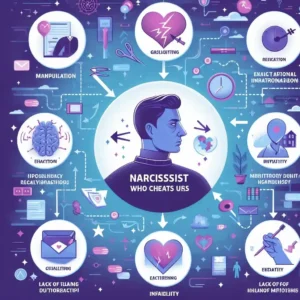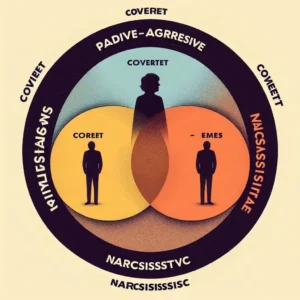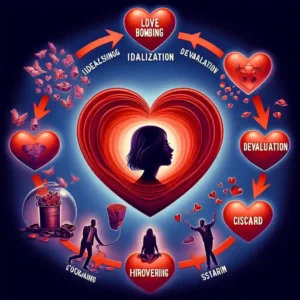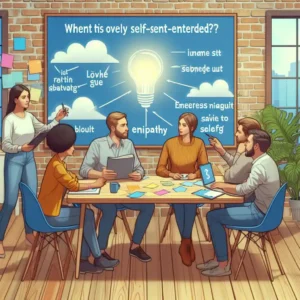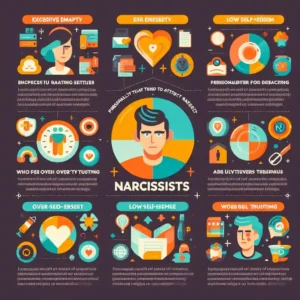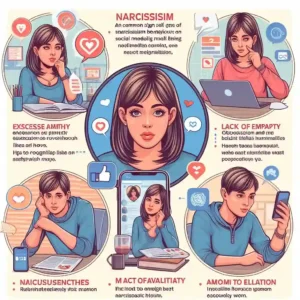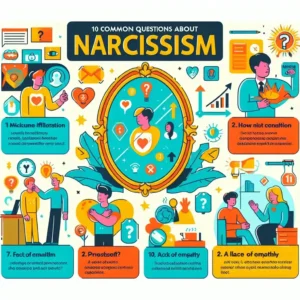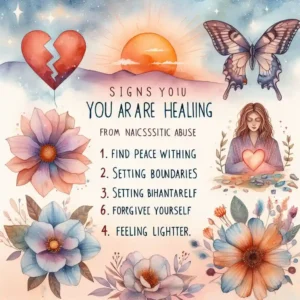You may not even realize it, but your childhood experiences with a narcissistic father have likely shaped your adult life in profound ways. Do you often find yourself struggling to set boundaries, seeking constant approval, or feeling like you’re walking on eggshells to avoid conflict?
Perhaps you’re plagued by self-doubt, attract emotionally unavailable partners, or prioritize independence to avoid getting hurt. If so, you’re not alone.
There are specific patterns and symptoms that daughters of narcissistic fathers often exhibit, and understanding these can be the key to breaking free from the past and accessing a more authentic, fulfilling life.
In a Nutshell

- Daughters of narcissistic fathers often struggle with people-pleasing, leading to emotional exhaustion and resentment due to prioritizing others’ happiness over their own needs.
- Fear of abandonment and rejection rooted in childhood experiences can trigger anxiety, hypervigilance, and a perpetual state of high alert in relationships.
- Low self-esteem and insecurity can stem from seeking external validation to compensate for a lack of self-approval, leading to self-doubt, fear of rejection, and overthinking.
- Difficulty forming and maintaining emotionally intimate relationships can arise from unconscious desires to recreate and resolve childhood trauma with the narcissistic father figure.
Difficulty Setting Healthy Boundaries
As a daughter of a narcissistic father, you may struggle to set healthy boundaries, often finding yourself torn between pleasing your father and honoring your own needs.
This inner conflict can stem from a childhood where your emotional well-being was consistently disregarded, making it challenging for you to prioritize your own desires.
As a result, you may feel uncertain about asserting your limits, fearing rejection, anger, or disappointment from your father.
Boundary setting becomes a formidable task, as you’re unsure of how to communicate your needs without being seen as selfish or ungrateful.
You may find yourself constantly giving in, overcommitting, and sacrificing your own desires to avoid conflict or maintain a sense of peace.
However, this people-pleasing approach can lead to emotional exhaustion and resentment.
Recognizing that setting healthy boundaries is crucial, it isn’t about being selfish, but about taking care of yourself.
People-Pleasing at All Costs
You’ve likely perfected the art of people-pleasing, constantly putting others’ needs before your own to avoid conflict, rejection, or feelings of guilt and anxiety. This sacrificial behavior has become second nature, as you’ve learned to prioritize others’ happiness over your own.
But at what cost? You’ve likely developed an approval addiction, constantly seeking validation from others to feel worthy.
This need for validation stems from your father’s narcissistic behavior, where you felt you’d to constantly prove yourself to gain his love and acceptance. Now, as an adult, you continue to put others first, even if it means sacrificing your own desires, needs, and dreams.
You may feel like you’re walking on eggshells, constantly trying to anticipate others’ expectations and avoiding any potential conflict.
But it’s time to recognize the toll this people-pleasing is taking on your mental and emotional well-being. You’re exhausted, anxious, and feel like you’re losing yourself in the process.
It’s crucial to break free from this approval addiction and start prioritizing your own needs. It’s time to learn that your worth isn’t defined by others’ opinions, but by your own self-acceptance and self-love.
Fear of Abandonment and Rejection
Driven by the lingering fear that you’re never good enough, you’re haunted by the constant anxiety of being abandoned or rejected by those you care about.
This fear is rooted in your childhood, where your narcissistic father’s behavior led you to believe that you were never enough. You may have felt like you were walking on eggshells, never knowing when his mood would shift and he’d lash out or withdraw his affection.
This fear has evolved into a pattern of behavior, triggering anxiety in your relationships and causing you to:
Overanalyze every conversation, searching for hidden meanings and potential signs of rejection.
Constantly seek validation, craving reassurance that you’re loved and appreciated.
Avoid conflict, fearing that any disagreement will lead to abandonment.
People-please, sacrificing your own needs and desires to maintain the relationship.
These fear triggers are deeply ingrained, but recognizing them is the first step towards breaking free.
Low Self-Esteem and Insecurity
You may struggle with confidence, constantly second-guessing your decisions and abilities.
This fear of rejection can be overwhelming, making you feel like you’re never good enough.
As a result, you may find yourself seeking external validation to compensate for the lack of self-approval that stems from your father’s narcissistic behavior.
Struggle With Confidence
One of the most debilitating consequences of being a daughter of a narcissistic father is the perpetual struggle with confidence, which often manifests as low self-esteem and insecurity.
You may find yourself constantly questioning your abilities, feeling like you’re never good enough, and struggling to make decisions.
This lack of confidence can seep into every area of your life, making it difficult to form healthy relationships, pursue your passions, and achieve your goals.
Self-doubt patterns: You frequently second-guess yourself, even when you know you’re making a rational decision.
Fearful comparisons: You compare yourself to others, feeling like you don’t measure up, and fearing you’ll never be as successful or accomplished as they are.
Overthinking and analysis paralysis: You spend too much time thinking about what could go wrong, rather than taking action and trusting your instincts.
Difficulty accepting compliments: You deflect or downplay praise from others, believing that you don’t truly deserve it.
Fear of Rejection
Fear of rejection, a debilitating byproduct of low self-esteem and insecurity, often stems from the constant need for validation and approval that was likely unmet in your relationship with your narcissistic father.
This fear can be overwhelming, causing you to doubt your worth and question your abilities. You may feel like you’re walking on eggshells, constantly seeking approval from others to compensate for the lack of validation you received from your father.
Your fear sources may be rooted in the emotional unavailability of your father, leading you to believe that you’re not good enough or lovable enough.
Rejection triggers can be as simple as a critical comment or a perceived slight, sending you into a tailspin of self-doubt and anxiety. You may find yourself people-pleasing or sacrificing your own needs to avoid rejection, further perpetuating the cycle of low self-esteem and insecurity.
Recognizing the root of your fear is the first step towards breaking free from this pattern. By acknowledging the impact of your father’s behavior, you can begin to rewire your thinking and develop a more compassionate, accepting relationship with yourself.
Emotional Unavailability in Relationships
You may find yourself struggling to form and maintain emotionally intimate relationships, often without realizing why.
You might attract partners who are emotionally unavailable or struggle to open up to those who are genuinely interested in you.
As you reflect on your relationships, you may uncover patterns of fear, difficulty with emotional connection, and a reluctance to get close, all of which can stem from your experiences with your narcissistic father.
Fear of Abandonment Issues
As you navigate intimate relationships, a lingering sense of insecurity may cause you to attract or be drawn to emotionally unavailable partners, perpetuating a cycle of heartache and disappointment.
This pattern often stems from the unconscious desire to recreate and resolve the childhood trauma you experienced with your narcissistic father figure. Your father’s inconsistent or absent emotional support may have led you to develop a deep-seated fear of abandonment, making it difficult for you to trust others or feel secure in relationships.
- Anxiety and clinginess: You become overly attached or needy, fearing that your partner will leave or abandon you.
- People-pleasing: You prioritize your partner’s needs over your own, hoping to avoid rejection or abandonment.
- Lack of boundaries: You tolerate unhealthy behavior or mistreatment, fearing that setting boundaries will lead to abandonment.
- Self-sacrifice: You put your own needs and desires on the backburner, prioritizing your partner’s happiness over your own.
Recognizing these patterns is the first step towards breaking free from the cycle of fear and emotional unavailability.
Difficulty With Emotional Intimacy
During romantic relationships, a disconnect often emerges between your desire for emotional closeness and your ability to achieve it, leaving you struggling to open up and be vulnerable with your partner.
You may find yourself craving deep connections, but simultaneously constructing emotional walls to protect yourself from potential hurt or rejection.
This paradox stems from the intimacy fears instilled by your narcissistic father, who may have made you feel unworthy, unloved, or unseen.
As a result, you may feel uncomfortable with emotional intimacy, fearing that your partner will abandon or critique you.
In an attempt to maintain control, you might intellectualize your emotions, focusing on the logical aspects of the relationship rather than the emotional ones.
This coping mechanism helps you avoid feelings of vulnerability, but it also hinders genuine connection and intimacy with your partner.
Recognizing these patterns is the first step towards breaking down your emotional walls and developing a more authentic, fulfilling relationship.
Afraid to Get Close
Fear of emotional closeness can manifest in a pattern of emotional unavailability, where you consistently pull back from getting too close, leaving your partner feeling frustrated and unheard.
You may have grown up witnessing your father’s manipulation and control, leading you to associate intimacy with a loss of autonomy. As a result, you may subconsciously sabotage relationships or keep partners at arm’s length.
You may be exhibiting emotional unavailability if you:
- You fear intimacy: You avoid deep conversations or physical affection, feeling uneasy when things get too close.
- You’re hesitant to commit: You struggle with making long-term plans or labeling your relationship, fearing you’ll lose your independence.
- You prioritize independence: You focus on your solo goals and interests, using them as a reason to distance yourself from your partner.
- You have a pattern of short-term relationships: You jump from one relationship to the next, never staying long enough to develop a deep emotional connection.
Recognizing these patterns is the first step towards breaking free from the fear of emotional closeness. By acknowledging your emotional unavailability, you can begin to work through the underlying issues and develop healthier, more fulfilling relationships.
Lack of Emotional Validation
You may struggle to recognize and accept your emotions because your narcissistic father consistently dismissed, minimized, or distorted your feelings.
His emotional dismissal and invalidation responses made you doubt your emotional experiences, leading to confusion and self-doubt. As a result, you may have learned to suppress or deny your emotions, fearing they’re not valid or important.
| Invalidation Response | Emotional Impact |
|---|---|
| ‘You’re overreacting’ | Feeling unheard and dismissed |
| ‘That’s not how I remember it’ | Feeling confused and uncertain |
| ‘You’re too sensitive’ | Feeling ashamed and unimportant |
These responses can lead to emotional numbing, making it difficult for you to identify and express your emotions in a healthy way. You may struggle to recognize your emotional needs and boundaries, leading to feelings of anxiety, depression, or low self-esteem. Remember, your emotions are valid and deserving of recognition.
It is crucial to break free from the cycle of emotional dismissal and learn to acknowledge and accept your feelings, even if they were rejected or minimized in the past.
Inability to Express Anger
Having grown up with a narcissistic father, you may have learned to swallow your anger, as expressing it was often met with defensiveness, blame-shifting, or even aggression, leaving you feeling silenced and powerless. This inability to express anger can lead to feelings of resentment, frustration, and anxiety.
You may have developed anger avoidance strategies to cope with these negative emotions.
Passive aggression: You express anger indirectly through sarcasm, procrastination, or subtle sabotage.
Denial: You convince yourself that you’re not angry, even when you’re seething inside.
Suppression: You push your anger deep down, only to have it resurface as anxiety, depression, or physical symptoms.
Avoidance: You sidestep conflicts or difficult conversations to avoid feeling angry or uncomfortable.
Recognizing these patterns is the first step towards breaking free from the shackles of anger avoidance. By acknowledging and working through your anger, you can begin to reclaim your emotional power and develop healthier relationships.
Struggles With Intimacy and Trust
As a result of growing up with a narcissistic father, your struggles with anger expression may have also influenced your ability to form and maintain intimate relationships, leading to difficulties with trust and emotional connection.
You may find yourself struggling to open up to others, fearing rejection or exploitation. This can lead to intimacy anxiety, causing you to avoid close relationships or sabotage them unintentionally.
| Fearful Attachment Patterns | Intimacy Anxiety Symptoms | Effects on Relationships |
|---|---|---|
| Fear of rejection | Avoidance of emotional conversations | Difficulty forming close bonds |
| Difficulty setting boundaries | Hypervigilance in relationships | Feeling trapped or suffocated |
| Fear of being trapped | Self-sabotaging behaviors | Pushing partners away |
| Fear of abandonment | Emotional unavailability | Feeling disconnected from others |
As you navigate relationships, you may find yourself stuck in a cycle of fearful attachment, struggling to trust others and form meaningful connections. Recognizing these patterns is the first step towards breaking free from the legacy of your narcissistic father’s influence.
By acknowledging your intimacy anxiety and fearful attachment patterns, you can begin to work towards building healthier, more fulfilling relationships.
Feeling Like a Burden or Inconvenience
Growing up with a narcissistic father often instills a deep-seated belief that your needs and feelings are an inconvenience to others. You may feel like you’re a burden to those around you, constantly walking on eggshells to avoid upsetting them. This can lead to feelings of anxiety and guilt, as if you’re always apologizing for existing.
You may exhibit certain behaviors that indicate you’re struggling with feelings of being a burden or inconvenience. These include:
- You frequently ask for permission: You seek approval for every decision, no matter how small, because you’re afraid of being a burden or causing inconvenience.
- You’re overly self-sacrificing: You put others’ needs before your own, often to the point of exhaustion, because you believe that’s what’s expected of you.
- You’re hesitant to express emotions: You bottle up your feelings to avoid being a ‘drain’ on others, even though this can lead to emotional numbness and disconnection.
- You’re plagued by self-doubt: You constantly question your worth and wonder if you’re truly a burden to those around you.
Enabling and Caretaking Others
You often find yourself covering for others’ mistakes, shouldering their responsibilities, and rescuing them from trouble.
You might do this because you’re afraid of being rejected or abandoned if you don’t, or because you genuinely want to help.
In doing so, you might feel a sense of temporary relief or control, but ultimately, you’re perpetuating a pattern of enabling and caretaking that can be exhausting and damaging to your own well-being.
Overcompensating for Others’ Mistakes
By shouldering the burden of others’ mistakes, you may find yourself perpetually overcompensating to avoid conflict or maintain a sense of control. This pattern of behavior can be exhausting and detrimental to your own well-being. Crucially, recognize that you’re not responsible for others’ mistakes, and it’s not your job to fix them.
You may exhibit certain behaviors that indicate you’re overcompensating for others. These include:
You apologize excessively: Even when it’s not your fault, you find yourself apologizing to avoid conflict or tension.
You take on others’ responsibilities: You assume the burden of others’ tasks or duties, even if it’s not your job or responsibility.
You enable others’ bad behavior: By constantly bailing others out or covering up their mistakes, you enable them to continue their negative patterns.
You sacrifice your own needs: You put others’ needs above your own, sacrificing your own well-being and happiness in the process.
Recognizing these patterns is the first step to breaking free from the cycle of overcompensation. By acknowledging your own needs and boundaries, you can begin to shift the responsibility of mistake ownership back to where it belongs – with the person who made the mistake.
Constantly Saving the Day
As you struggle to break free from the weight of overcompensating, you may find that constantly saving the day for others has become an unconscious habit, one that reinforces your need for control and approval.
This pattern of behavior can stem from your childhood experiences with a narcissistic father, where you felt responsible for his emotional well-being. Now, you may find yourself in rescue mode, perpetually fixing problems and soothing hurt feelings.
This hero complex can be exhausting, yet you feel compelled to continue.
You may rationalize that you’re just being helpful or supportive, but deep down, you’re trying to gain validation and recognition. By constantly saving the day, you’re attempting to prove your worth and earn the love and approval you never received from your father.
However, this enabling behavior only perpetuates the cycle of codependency and people-pleasing. It’s crucial to acknowledge that you’re not responsible for others’ happiness or success.
Overly Critical Self-Talk
Growing up with a narcissistic father, it’s likely that you’ve internalized his constant criticism, now manifesting as a persistent, unforgiving inner voice that scrutinizes your every move, thought, and feeling.
This internalized self-criticism can be overwhelming, making you feel like you’re never good enough.
You may experience self-doubt patterns, where your inner critic constantly questions your abilities and decisions.
This can lead to feelings of inadequacy, anxiety, and low self-esteem.
Crucial to acknowledge is that this critical voice isn’t your own, but rather a reflection of your father’s negative influences.
Constant self-blame: You often find yourself apologizing or beating yourself up over minor mistakes.
Harsh self-judgment: You criticize yourself more severely than you’d a friend in a similar situation.
Negative self-talk: You frequently engage in negative self-talk, using words like ‘stupid,’ ‘lazy,’ or ‘incompetent’ to describe yourself.
Perfectionism: You feel like you need to achieve perfection to be worthy, leading to unrealistic expectations and self-criticism when you fall short.
Fear of Making Mistakes and Failure
You live in constant fear of making mistakes, a phobia that’s deeply rooted in your father’s narcissistic behavior, which led you to believe that any error would be met with disapproval, ridicule, or even abandonment.
This fear has conditioned you to aim for rigid perfectionism, where anything less than flawless is unacceptable. As a result, self-doubt concerns creep in, making you question your abilities and second-guess your decisions.
| Fear of Making Mistakes | Impact on Your Life |
|---|---|
| Fear of criticism | Avoid taking risks, sticking to what’s familiar |
| Fear of failure | Procrastination, overthinking, and analysis paralysis |
| Fear of not meeting expectations | People-pleasing, sacrificing personal needs and desires |
This fear of making mistakes and failure holds you back from pursuing your passions, trying new things, and living life to the fullest.
It’s crucial to recognize that this fear is a learned behavior, rooted in your father’s narcissistic behavior. By acknowledging and addressing this fear, you can begin to break free from the shackles of perfectionism and self-doubt, embracing a more authentic, empowered, and fulfilling life.
Difficulty Making Decisions Independently
Your fear of making mistakes and failure often leads to an overreliance on others’ opinions, making it difficult for you to trust your own instincts and make decisions independently. This lack of trust in yourself stems from years of being criticized, belittled, or ignored by your narcissistic father. As a result, you may struggle with fearful autonomy, constantly seeking validation from others before making a move.
You may exhibit signs of difficulty making decisions independently, including:
- You overthink every decision, weighing every possible outcome and seeking input from multiple sources.
- You procrastinate, putting off decisions until someone else makes them for you.
- You second-guess yourself, constantly wondering if you’ve made the ‘right’ choice.
- You experience decision paralysis, feeling overwhelmed and stuck when faced with multiple options.
Feeling Unheard and Dismissed
As a result of being constantly talked over, ignored, or dismissed by your narcissistic father, his voice of dismissal still echoes in your mind, making you feel like your thoughts and opinions are insignificant and unworthy of being heard.
You’ve grown accustomed to being silenced, and it’s become a painful habit to internalize your thoughts, fearing they won’t be valued or respected.
Your silenced voices and ignored opinions have led you to doubt your own abilities, making you question whether your ideas are even worth sharing.
This constant dismissal has seeped into your adult life, where you may struggle to express yourself confidently or assertively.
You might hesitate to speak up in meetings, fearing rejection or criticism.
Even in personal relationships, you may feel like your partner or friends aren’t truly listening to you.
It’s crucial to acknowledge that this isn’t a reflection of your worth or the validity of your thoughts.
You deserve to be heard and understood.
Hypervigilance and Anxiety
Living with a narcissistic father can condition you to exist in a perpetual state of high alert, where every situation, no matter how mundane, feels like a potential threat. You’re always ‘on’ and ready to respond to the next crisis, real or imagined.
This hypervigilance can lead to anxiety, as your body’s fear responses are constantly triggered, releasing stress hormones like adrenaline and cortisol into your system.
As a result, you may experience:
Racing thoughts and a sense of overwhelm, as you try to anticipate and prepare for every possible scenario.
Difficulty relaxing or calming down, even in safe or familiar environments.
Increased situational awareness, as you constantly scan your surroundings for potential threats or dangers.
Physical symptoms like tension headaches, insomnia, or digestive issues, as your body struggles to cope with the constant stress.
Frequently Asked Questions
Can I Ever Fully Recover From My Narcissistic Father’s Abuse?
You can break free from your father’s toxic grasp, but full recovery requires acknowledging the depth of your father wounds and confronting the emotional legacies they’ve left.
Why Do I Attract Narcissistic Partners and Friends?
You attract narcissistic partners and friends because you’re drawn to familiar patterns, seeking external validation to compensate for your own inner doubts. It’s time to recognize this pattern and cultivate inner validation to break free.
How Do I Stop Feeling Guilty for Setting Boundaries?
You recognize that setting boundaries sparks boundary anxiety, and guilt triggers hold you back. Acknowledge these feelings, then challenge them by reframing boundaries as self-care, not selfishness, to break free from the weight of undeserved guilt.
Can Therapy Help Me Overcome My People-Pleasing Tendencies?
You can break free from people-pleasing by leveraging therapy to develop self-reflection skills, assertively setting boundaries, and practicing empathy without sacrificing your own needs – it’s a journey towards embracing your authentic self.
Will I Ever Be Able to Develop Healthy Self-Esteem?
You can develop healthy self-esteem by practicing self-awareness exercises to recognize your worth, and using mindful affirmations to rewire negative thought patterns, allowing you to break free from people-pleasing and embrace your true value.





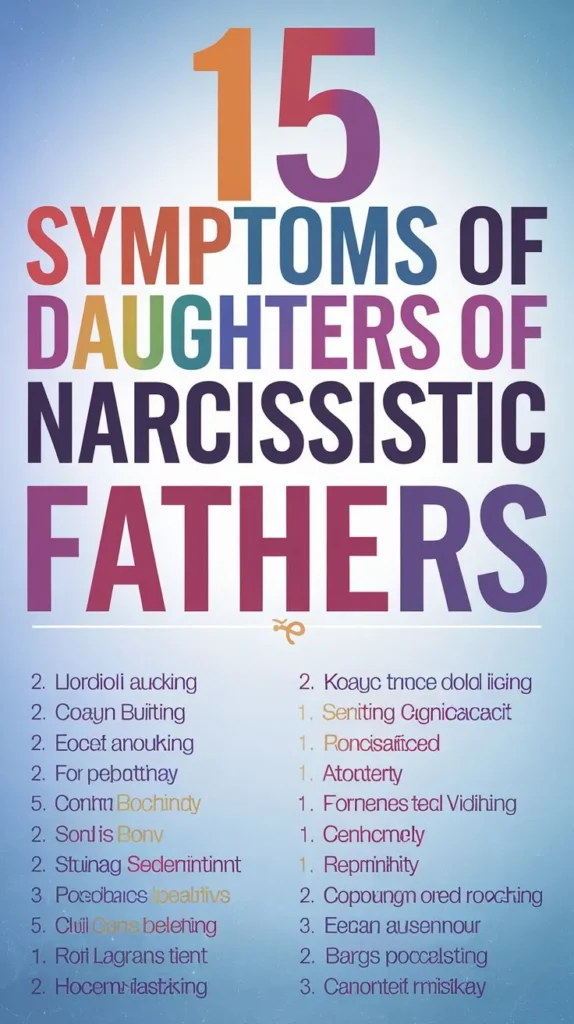



James Green is a seasoned psychologist specializing in narcissism and other personality and relationship issues. With a passion for helping others understand and navigate their own personality traits and relationships, James shares his insights and expertise on his blog, Personality Diaries. Connect with him on Pinterest and Instagram for regular updates and insights.





